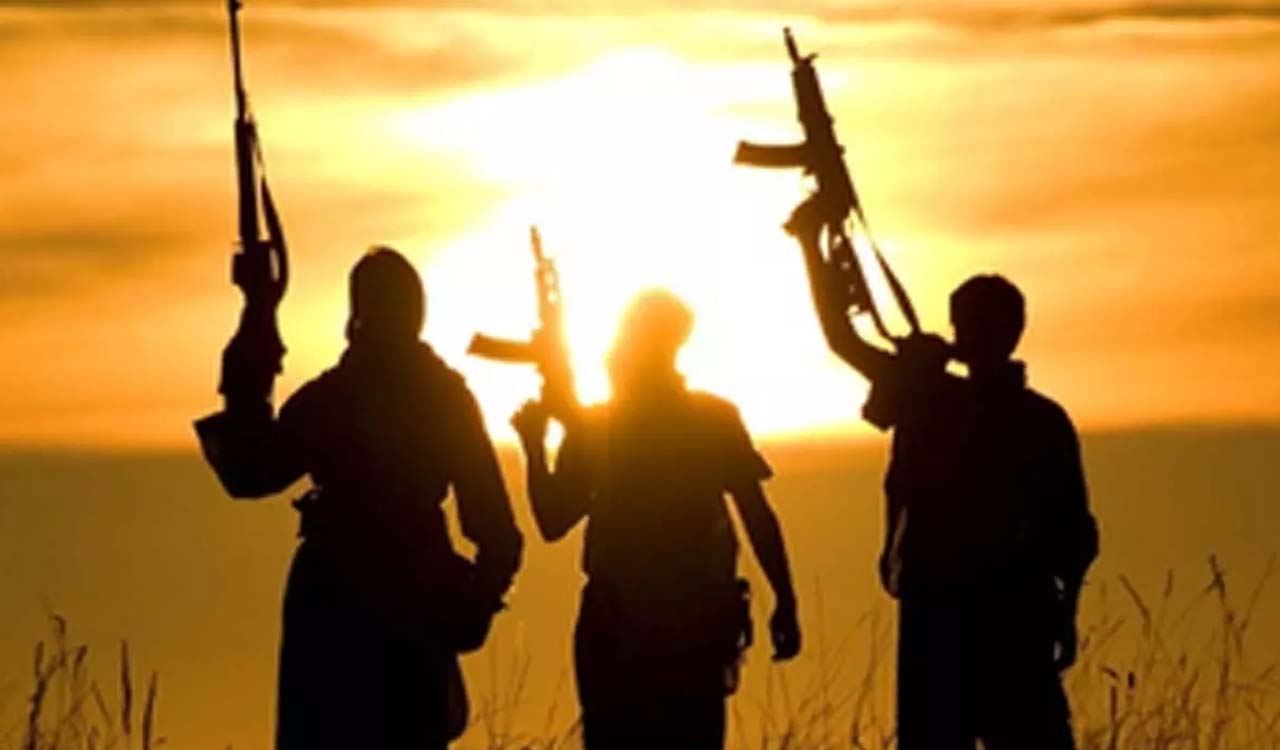Opinion: Paradox of counter-terrorism
Pakistan’s appointment as Vice-Chair of UNSC CTC raises serious concerns about the credibility of international bodies

By Lochana Hariharan, Dr Karamala Areesh Kumar
The appointment of Pakistan as Vice Chair of the United Nations Security Council’s Counter-Terrorism Committee (UNSC CTC) and as Chair of the UNSC 1988 (Taliban Sanctions) Committee for the 2025-26 term has come as a surprise, given Pakistan’s historical connection with both state-sponsored and non-state terrorism.
Also Read
Pakistan will also co-chair two key subsidiary bodies — the Informal Working Group on Documentation and the newly formed Working Group on Sanctions. The documentations group is tasked with enhancing the committee’s transparency, inclusivity and effectiveness, while the sanctions group will evaluate and improve the structure and effectiveness of the UN’s sanction regimes. Though this appointment is of great diplomatic value for Islamabad, it has faced heavy criticism, especially from India.
Formation of UNSC CTC
The UNSC CTC was established through Resolution 1373 (2001) following the 9/11 attacks in the United States. A primary reason for this was that the terrorists had attacked a global superpower. Even before the 9/11 attack, there had been several major terrorist incidents such as the 1993 Bombay bombings, the 1999 Indian Airlines Flight IC-814 hijacking, and the 1997 Luxor Massacre in Egypt. Despite these incidents, the UN did not consider the formation of an institution solely dedicated to countering terrorism. It was only after the attack on the US that the UNSC unanimously adopted a resolution to establish the UNSC CTC.
The committee’s primary responsibility is to monitor the implementation of counter-terrorism commitments by the UN member states, including criminalising terrorist financing, promoting international cooperation to combat terrorism and denying safe haven to terrorists. As Vice Chair of the committee, Pakistan is obliged to contribute to shaping a world free of terrorism.
The UNSC Sanctions Committee under Resolution 1988 was established in 2011 to oversee sanctions measures against individuals or entities associated with the Taliban. This committee manages travel bans, arms embargoes, and asset freezes related to Taliban-linked entities. Pakistan’s historical ties with the Afghan Taliban have fueled controversies. Such appointments – where a country that supports terrorism is made a leader to counter terrorism — undermines the legitimacy of international organisations.
Raising Questions
Pakistan has often been criticised for harbouring terrorist organisations and providing them with safe havens. Examples include the presence of Osama bin Laden (the mastermind behind the 9/11 attack) in Abbottabad just a few kilometres from a military academy, the Jaish-e-Mohammed which carried out the Pulwama attack (2019), Lashkar-e-Taiba (LeT), responsible for the Mumbai attacks in 2008, JeM and LeT involved in Parliament attacks in 2001 and the recent Pahalgam attack which was carried out by The Resistance Front (TRF), considered to be a proxy of LeT.
The UN has approximately 800 globally listed terrorist organisations, of which more than 200 are based in Pakistan. The country is also accused of sheltering individuals like Hafiz Saeed and Abdul Rehman Makki, who are sanctioned under the UN’s 1267 Sanctions Committee. These factors challenge the credibility of Pakistan’s new role within the UNSC CTC, and raise doubts about the efficacy of the committee under such leadership.
India has expressed serious concerns about the appointment, in light of Pahalgam attacks, citing Pakistan’s continued support for terrorism by state and by non-state actors.
Though inclusive diplomacy is essential, it should not come at the cost of compromising the effectiveness of international institutions committed to combating terrorism
In an interview with Sky News, Pakistan’s Defence Minister, Khwaja Mohammad Asif, admitted that the country supported terrorist groups for almost three decades. Further, he acknowledged that the government was involved in “dirty business” on behalf of the West when questioned about Islamabad’s involvement in funding and backing terrorism.
In response, India has decided to submit comprehensive reports to the UNSC, which highlight Pakistan’s role in supporting terrorism. India’s Ministry of External Affairs has engaged in bilateral diplomatic outreach to protest against Pakistan’s appointment as vice-chair of the UNSC CTC. India’s primary concern is that, if this decision of Pakistan’s appointment remains unchallenged, it may set a precedent that normalises the inclusion of countries with poor anti-terror records in leadership roles within various international organisations.
Clean Record
Pakistan has also tried to make the Kashmir issue a human rights concern, especially on international platforms, such as the United Nations Human Rights Commission (UNHRC). During the 55th UNHRC session in February 2024, Pakistan reiterated these claims, which India strongly rejected. Anupama Singh, First Secretary at India’s Permanent Mission to the UN, called out Pakistan, stating that Jammu & Kashmir is an internal matter, and the real threat is cross-border terrorism. She criticised Pakistan’s narrative as a tactic to shift global attention from its role in sponsoring terrorism.
India’s Permanent Representative to the UN, Ambassador Parvathaneni Harish, called the appointment a “supreme irony”, and described Pakistan as the “global epicentre of terrorism” for harbouring UN-listed terrorist entities.
The UNSC must consider the long-term implications of allowing countries like Pakistan to hold such an influential position on the international platform. Though inclusive diplomacy is essential, it should not come at the cost of compromising the credibility of international institutions.
To restore trust, the Security Council must establish stricter eligibility criteria for leadership roles, rather than have it on a mere rotational basis. Countries entrusted with authoritative roles should have a clean counter-terrorism record.

(Lochana Hariharan is Research Assistant, and Dr Karamala Areesh Kumar is Head, Department of International Relations, Peace and Public Policy, St Joseph’s University, Bengaluru)
Related News
-
University of Hyderabad participates in Bharat Rang Mahotsav 2026
3 mins ago -
Classical singer Malavika Anand to perform devotional concert at Yadgirigutta temple
13 mins ago -
Anupama Parameswaran signs psychological thriller, shoot begins in May
18 mins ago -
Karimnagar court bomb scare: Police confirm false alarm
24 mins ago -
Secunderabad Cantonment MLA boycotts board meeting, demands immediate polls
41 mins ago -
Month-long SSC timetable sparks debate over student focus
42 mins ago -
Three years on, Project Cheetah records 38 cheetahs across Kuno, Gandhi Sagar
45 mins ago -
Telangana’s vehicle scrapping scheme falters as old vehicles stay on roads
58 mins ago




